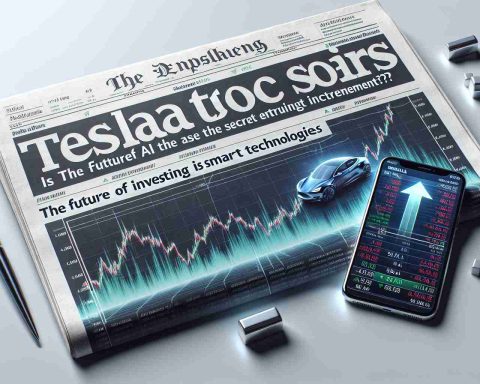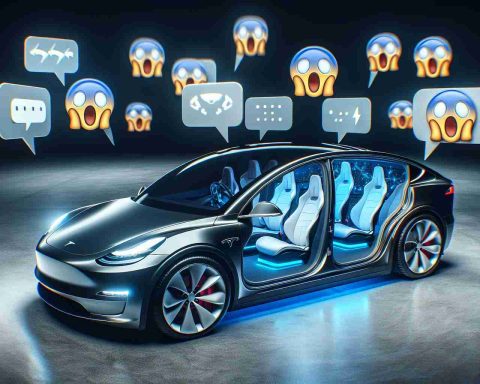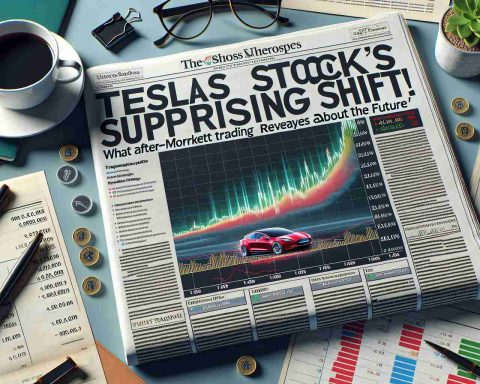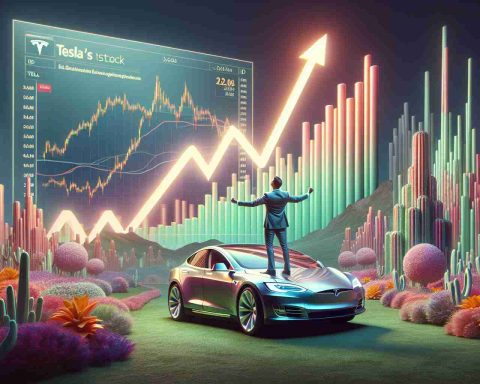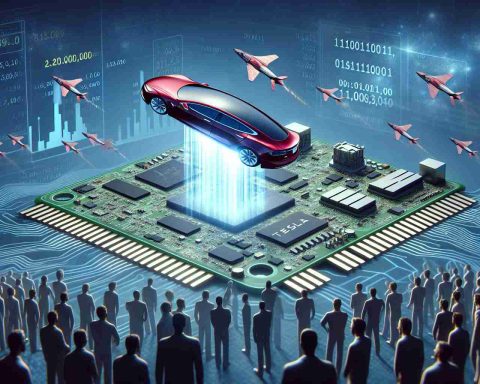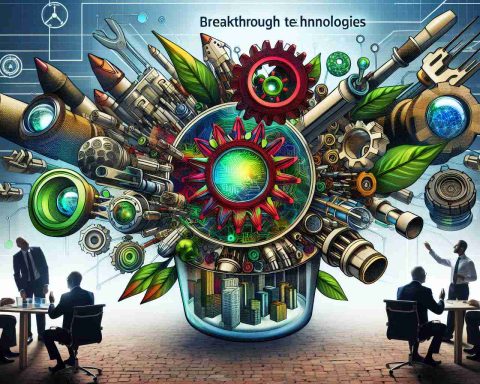The electric vehicle landscape in China is experiencing a significant uptick in registrations. Last week, major manufacturers, including Nio, Li Auto, and Xpeng, all reported impressive figures as they approach the traditional peak sales period before the Lunar New Year.
Nio has made headlines with a remarkable 145.7% year-on-year increase in unit sales, reaching over 4,700 vehicles. The brand itself accounted for 2,836 vehicles, while its sub-brand Onvo contributed 1,913 units. Despite the general market’s slowdown leading into the festive season, Nio observed a good rebound in insurance registrations, particularly compared to the previous week.
In parallel, Li Auto recorded 9,500 insurance registrations—a 25% increase from the prior week—and delivered a whopping 58,513 cars in December, contributing to an invigorating total of 500,508 for the year. Similarly, Xpeng edged closer to its record figures, with 9,400 registrations last week and an overall annual increase of 34.23%.
Tesla also thrived, with a 28% increase in registrations, totaling 10,000 in the same week. Its Shanghai operations continue to be vital, as evidenced by a strong December performance that solidified its position in the market.
Other players like BYD and Xiaomi are not far behind, with robust sales and targets set for growth. The anticipation of the Lunar New Year may indeed add a dynamic layer to the electric vehicle market as manufacturers hustle to maximize sales before the holiday break.
Driving Change: The Broader Implications of China’s Electric Vehicle Surge
The recent explosion in electric vehicle (EV) registrations in China underscores a transformative shift in the automotive landscape, with far-reaching implications for society and the global economy. As Chinese manufacturers like Nio, Li Auto, and Xpeng ramp up production and sales, they not only redefine consumer preferences but also catalyze a cultural transition toward sustainability. The surge in EV adoption reflects a growing awareness of environmental issues among consumers, who are increasingly inclined to consider the ecological impacts of their choices.
In addition to cultural shifts, this influx of EVs is poised to significantly impact the global economy. As China solidifies its position as the leading EV market, international competitors may need to adapt quickly or risk obsolescence. The country’s aggressive investment in EV technology and infrastructure creates opportunities for partnerships and innovation, driving competition and potentially lowering prices globally.
Moreover, the environmental benefits accompanying electrification cannot be overstated. As more EVs replace gasoline-powered cars, China could see a substantial reduction in urban air pollution, contributing to improved public health outcomes. However, concerns about battery production and waste management loom large, necessitating forward-thinking policies to promote sustainable practices in the EV supply chain.
Looking ahead, the trends indicate a continued acceleration of electric vehicle adoption. If manufacturers maintain this momentum, China could serve as a blueprint for other nations aiming to shift toward greener transportation solutions. The implications extend well beyond automobile sales; they entail profound changes in urban planning, energy consumption, and international trade relations. The global race to electrification may ultimately alter the very fabric of our urban environments and economic structures, leading to a cleaner, more sustainable future.
The Electric Vehicle Surge: China’s Rapid Growth and Upcoming Trends
The electric vehicle (EV) market in China is experiencing a dramatic rise, with key manufacturers reporting significant growth as they gear up for the upcoming Lunar New Year. This surge highlights the competitive landscape and evolving consumer preferences in the world’s largest electric vehicle market.
Impressive Sales Figures and Market Performance
Recent reports indicate that leading companies like Nio, Li Auto, and Xpeng have all demonstrated exceptional performance. Nio, for instance, saw a staggering 145.7% year-on-year increase in unit sales, delivering over 4,700 vehicles in the past week alone. Of this, Nio accounted for 2,836 vehicles, while its sub-brand, Onvo, contributed 1,913 units. These figures reflect a robust rebound in insurance registrations, especially notable compared to the previous week.
Li Auto followed suit with 9,500 insurance registrations, marking a 25% increase from the week before. The company also achieved 58,513 deliveries in December, leading to a total of 500,508 cars sold throughout the year, showcasing an invigorated demand.
Xpeng reported 9,400 registrations last week and an overall annual sales growth of 34.23%, indicating its competitiveness in this rapidly evolving market.
Tesla, the global giant in the EV space, also thrived, witnessing a 28% increase in registrations, tallying 10,000 units in the same time frame. Tesla’s Shanghai operations play a crucial role in its overall strategy, reinforcing its significant foothold in the Chinese market.
Future Trends and Insights
As manufacturers prepare for the Lunar New Year, the anticipation of increased consumer spending and demand is compelling them to ramp up efforts for peak sales. This season is traditionally a high-sales period, and companies are strategically positioning themselves to maximize registrations.
Pros and Cons of the Current Electric Vehicle Market in China
# Pros:
– Rapid growth in sales: Companies like Nio, Li Auto, and Xpeng are achieving record registrations, reflecting consumer interest.
– Strong competition: The surge in multiple manufacturers encourages innovation and lower prices for consumers.
– Government support: Increased policies favoring green technology bolster the EV market.
# Cons:
– Market saturation risk: The rapid influx of new models may lead to over-saturation.
– Supply chain challenges: Potential disruptions in global supply chains could affect production.
– Dependence on incentives: Market growth heavily relies on government subsidies, with potential reduction impacting sales.
Innovations and Future Predictions
With the ongoing improvements in battery technology, autonomous driving features, and connectivity, the expectations for the EV market in China are sky-high. Analysts predict that these advancements will continue to attract more consumers, leading to an ever-growing market share for electric vehicles.
Conclusion
As the electric vehicle landscape in China continues to evolve, companies are diligently preparing for robust growth leading into the Lunar New Year. With manufacturers reporting strong sales figures and increased interest from consumers, it is clear that the EV market is on an upward trajectory. For more insights and detailed reports on the electric vehicle industry, visit the EV Sourced website.
This momentum in the Chinese EV sector promises exciting developments and opportunities for both manufacturers and consumers alike as they navigate the ever-changing market dynamics.



